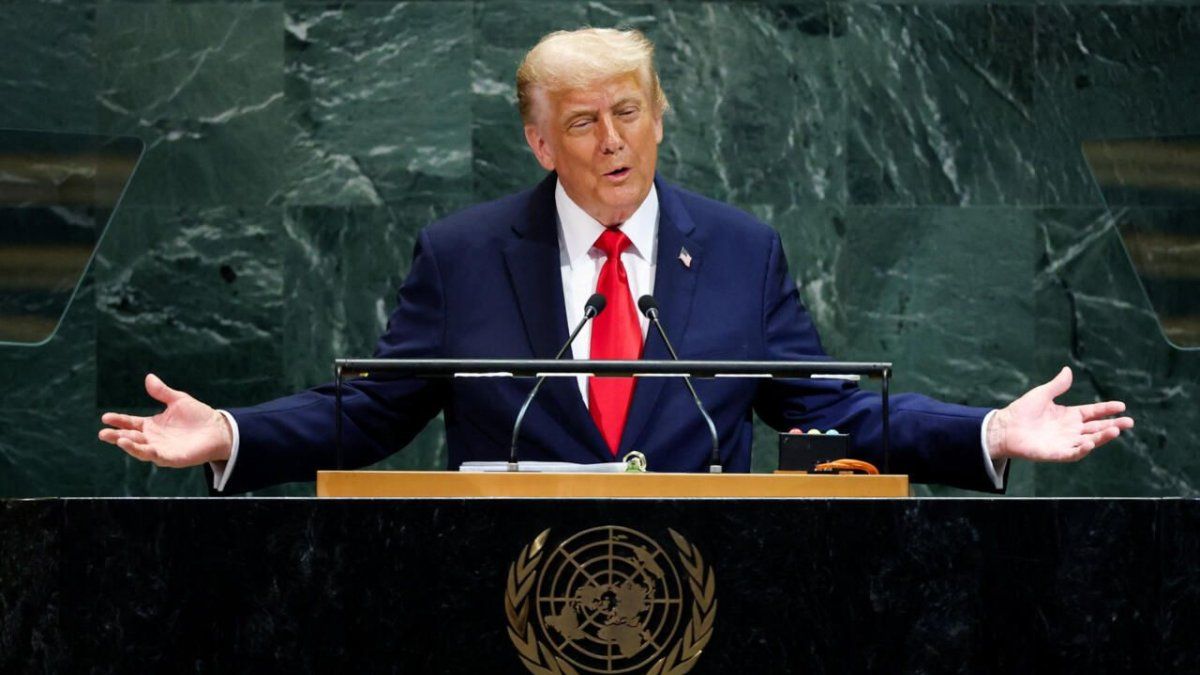Frank-Walter Steinmeier announced early on that he wanted to run again as Federal President. Possibly also to keep the office out of the coalition haggling.
While Berlin is struggling to find out who will form the next government, Federal President Frank-Walter Steinmeier is on the move.
A few days in the Republic of Moldova, then in the Ukraine. The issues are serious, the president unimpressed and apparently unaffected by the courtship dance of the parties after the federal election. The office of Federal President is non-partisan, which is why the former SPD candidate for Chancellor has been resting his party membership for years. But the appointment of the office is often anything but bipartisan. Could the highest office of the state become a bargaining chip in the coalition talks on a traffic light or still not excluded Jamaica government?
A new Federal President will be elected in February 2022. Steinmeier, proposed by the SPD and previously supported by CDU / CSU and FDP, said early on that he would run again – at a time when almost everyone still thought that the SPD would end up behind the Union in the federal elections. For the now 65-year-old, the move seemed risky, because there was no telling how the Federal Assembly would be composed, in which members of the Bundestag and representatives of the federal states decide who will be the head of the Bellevue Palace.
Keep the high office out of the political petty
“I know that I cannot rely on a majority in the Federal Assembly from the outset. But I don’t compete out of convenience, but out of conviction, ”Steinmeier said at the time. His mission: to help heal the wounds of the Corona crisis and support democracy, which has come under pressure. At the same time, it was analyzed that with his early announcement, the Federal President wanted to keep the high office out of the political muddle of coalition poker.
In the meantime, however, there has been a rumor in political Berlin for some time that a future Chancellor – according to the current status Olaf Scholz (SPD) or possibly Armin Laschet (CDU) – could use the office in the coalition negotiations as a lure to attract the FDP or the Greens to get an alliance. It could come on the table when it comes to the occupation of the Treasury, the Foreign Ministry, or other powerful houses.
According to calculations by the Internet portal election.de, a Jamaica coalition of the Union, Greens and FDP as well as a traffic light with SPD, Greens and FDP would have a clear majority in the Federal Assembly – the new governing parties could basically decide among themselves who would be the Federal President is chosen.
During the election campaign, SPD General Secretary Lars Klingbeil publicly accused the CDU and CSU of wanting to “sell off the office of Federal President in order to secure their power”. “What an understanding of democracy,” he said angrily. But SPD chancellor candidate Scholz could also find himself in the uncomfortable position of having to sacrifice former party friend Steinmeier in coalition poker.
If Scholz were to become Chancellor, three of the most powerful offices in the Federal Republic would all be in the hands of the SPD: a Social Democratic head of government, a Federal President proposed by the Social Democrats, and a Social Democratic President of the Bundestag. That could be too much for a party with a 25 percent election result. Also striking: If the SPD cannot find a President of the Bundestag, none of the important posts would be occupied by a woman.
Especially female names are therefore mentioned when there is speculation about Steinmeier’s successor: first and foremost Katrin Göring-Eckardt, the parliamentary leader of the Greens and former President of the Synod of the Evangelical Church in Germany (EKD) – she would not only be the first woman, but also the first green in the highest office of the state.
However, a coalition deal at the expense of the Federal President would not go down well with the population. A large majority of 70 percent would like a second term in office for Steinmeier, according to a Forsa survey for the editorial network in Germany. Even 85 percent are against his re-election being the subject of coalition poker. In his podcast, former Chancellor Gerhard Schröder also recently opposed making the election of the Federal President in coalition talks a matter of negotiation.
And the FDP and the Greens themselves? Unsurprisingly, none of the parties has so far registered any ambitions for the office. The FDP supported Steinmeier when he threw his hat into the ring for the second term of office. The Greens will hardly want to be accused of having exchanged the Federal President’s office for a compromise and, for example, weakened their climate protection principles.
Steinmeier himself could also have an important task in the struggle for the new government: After the last federal election, no coalition would have come about without his intervention.
David William is a talented author who has made a name for himself in the world of writing. He is a professional author who writes on a wide range of topics, from general interest to opinion news. David is currently working as a writer at 24 hours worlds where he brings his unique perspective and in-depth research to his articles, making them both informative and engaging.




